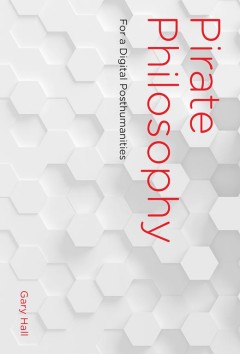Filter by

21st Century Media and Female Mental Health
This open access book examines the conversations around gendered mental health in contemporary Western media culture. While early 21st century-media was marked by a distinct focus on happiness, productivity and success, during the 2010s negative feelings and discussions around mental health have become increasingly common in that same media landscape. This book traces this turn to sadness in wo…
- Edition
- 1
- ISBN/ISSN
- 978-3-031-16756-0
- Collation
- -
- Series Title
- -
- Call Number
- XIII, 224

Construction, Operation and Maintenance of Network System(Junior Level)
This open access book follows the development rules of network technical talents, simultaneously placing its focus on the transfer of network knowledge, the accumulation of network skills, and the improvement of professionalism. Through the complete process from the elaboration of the theories of network technology to the analysis of application scenarios then to the design and implementation o…
- Edition
- 1
- ISBN/ISSN
- 978-981-19-3069-0
- Collation
- -
- Series Title
- -
- Call Number
- XI, 373

The Changing World of Mobile Communications
This open access book from the world’s first 6G Flagship research program at the University of Oulu, Finland, provides a multi-disciplinary and insightful overview of the subject, with contributions from experts in the field. Today’s fourth generation of mobile connectivity services (4G) are available everywhere, and adoption of fifth generation (5G) networks is well underway. Compared to 4…
- Edition
- -
- ISBN/ISSN
- 978-3-031-33191-6
- Collation
- XXXIII, 331
- Series Title
- -
- Call Number
- -

Pirate philosophy for a digital posthumanities
How philosophers and theorists can find new models for the creation, publication, and dissemination of knowledge, challenging the received ideas of originality, authorship, and the book.OCLC-licensed vendor bibliographic record.
- Edition
- -
- ISBN/ISSN
- 9780262332217
- Collation
- 1 online resource (xiv, 248 pages).
- Series Title
- -
- Call Number
- -

Here/there :telepresence, touch, and art at the interface
An examination of telepresence technologies through the lens of contemporary artistic experiments, from early video art through current ""drone vision"" works.OCLC-licensed vendor bibliographic record.
- Edition
- -
- ISBN/ISSN
- 9780262338240
- Collation
- 1 online resource (xiii, 250 pages) :illustrations.
- Series Title
- -
- Call Number
- -

Regulating the cloud :policy for computing infrastructure
"The emergence of cloud computing marks the moment when computing has become, materially and symbolically, infrastructure -- a sociotechnical system that is ubiquitous, essential, and foundational. Increasingly integral to the operation of other critical infrastructures, such as transportation, energy, and finance, it functions, in effect, as a meta-infrastructure. As such, the cloud raises a v…
- Edition
- -
- ISBN/ISSN
- 9780262331166
- Collation
- 1 online resource (xi, 316 pages) :illustrations.
- Series Title
- -
- Call Number
- -

Cloud Computing
Das Herausgeberwerk zeigt Chancen und Risiken des Cloud Computings auf, bringt Lesern das Thema durch anschauliche Beispiele aus Forschung und Praxis näher und zeigt die Implikationen auf, die aus dieser neuen Infrastruktur resultieren. Die Beitragsautoren präsentieren technische Lösungen, Geschäftsmodelle und Visionen, die einerseits die Herausforderungen und Hürden des Cloud Computing au…
- Edition
- -
- ISBN/ISSN
- 978-3-658-20967-4
- Collation
- -
- Series Title
- Edition HMD
- Call Number
- XVI, 216

Performance Engineering
This open access book improves the users' skills needed to implement models for performance evaluation of digital infrastructures. Building a model is usually a relatively easy task, but making it an accurate representation of the phenomenon to be reproduced is a completely different matter. It is well-known that to increase the ability to build reliable models it is necessary to accumulate exp…
- Edition
- -
- ISBN/ISSN
- 978-3-031-36762-5
- Collation
- XII, 146
- Series Title
- -
- Call Number
- -

The Media Systems in Europe
Stylianos Papathanassopoulos is a Professor of Media Organization and Policy at the Department of Communication and Media Studies, National and Kapodistrian University of Athens (NKUA), Greece. Between 2007 and 2011 he was the head of the faculty and member of the Board of the Hellenic Audiovisual Institute. Further, he is a Visiting Professor at City University, London, United Kingdom. Previou…
- Edition
- -
- ISBN/ISSN
- 978-3-031-32799-5
- Collation
- -
- Series Title
- -
- Call Number
- -

5G and Beyond
This open-access book aims to highlight the coming surge of 5G network-based applications and predicts that the centralized networks and their current capacity will be incapable of meeting the demands. The book emphasizes the benefits and challenges associated with the integration of 5G networks with varied applications. Further, the book gathers and investigates the most recent 5G-based resear…
- Edition
- -
- ISBN/ISSN
- 978-981-99-3667-0
- Collation
- XIII, 305
- Series Title
- -
- Call Number
- -
 Computer Science, Information & General Works
Computer Science, Information & General Works  Philosophy & Psychology
Philosophy & Psychology  Religion
Religion  Social Sciences
Social Sciences  Language
Language  Pure Science
Pure Science  Applied Sciences
Applied Sciences  Art & Recreation
Art & Recreation  Literature
Literature  History & Geography
History & Geography